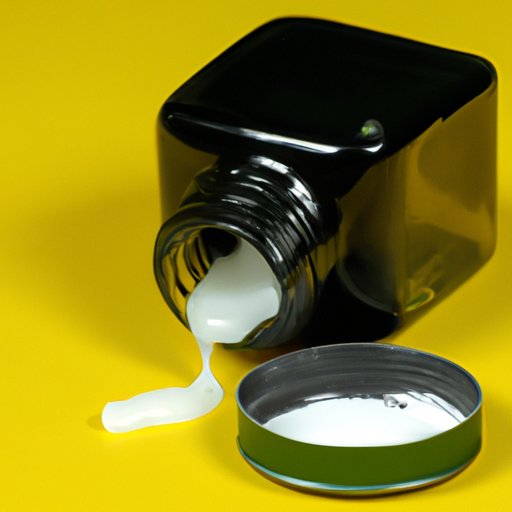
Introduction
Ringworm is a fungal infection that affects the skin and is caused by various types of fungi known as dermatophytes. This infection can be commonly spotted on the body, scalp, and feet. It spreads quickly and can cause discomfort, embarrassment, and even lead to complications. Therefore, it is essential to seek proper treatment for ringworm. This article is a comprehensive guide to help you understand ringworm, its cause, symptoms, and treatment options to help you get rid of it for good.
Understanding Ringworm: Causes, Symptoms and Treatment Options
Ringworm is a skin infection that often appears in a round or oval shape, hence the name “ringworm”. The fungus that causes ringworm thrives in warm and moist areas, such as in sweaty workout clothes, towels, and shower floors. Ringworm can also be spread through direct contact with an infected person or animal. The most common symptoms of ringworm include itchy, scaly, and red patches on the skin. In some cases, the infection can become severe, causing hair loss and oozing blisters.
Fortunately, ringworm is treatable and can be cured with proper medication and hygiene practices. Home remedies and medicated creams are popular treatment options, and both can be effective.
5 Simple Home Remedies to Treat Ringworm
If you are looking for a natural way to get rid of ringworm, home remedies can be an excellent choice. Here are five of the most effective home remedies for treating ringworm:
- Tea tree oil: Tea tree oil has antifungal properties and can be applied directly to the infected area for a few weeks.
- Coconut oil: Coconut oil contains lauric acid, which has antifungal properties. Apply coconut oil to the affected area several times a day.
- Garlic: Crush fresh garlic and mix with olive oil to make a paste. Apply the paste several times a day until the infection clears.
- Aloe Vera: Aloe vera has antifungal properties and can be applied directly to the infected area to help soothe the skin.
- Apple cider vinegar: Dilute apple cider vinegar with water and apply to the infected area several times a day. The acidity helps fight off the fungus.
While these remedies can be effective, it’s important to note they may take longer to work than medicated creams. Keep in mind that every individual’s skin reacts differently, so it’s essential to monitor the progress of the treatment closely.
Top 3 Medicated Creams to Get Rid of Ringworm
Medicated creams and ointments are also effective in clearing ringworm infections. Here are three of the most effective medicated creams to consider:
- Clotrimazole: This cream can be found at most drugstores and has antifungal properties that help kill the fungal infections that cause ringworm.
- Miconazole: Miconazole is another common antifungal cream that can be used to treat ringworm.
- Terbinafine: This antifungal cream is more potent than clotrimazole and miconazole and is often used for more severe cases of ringworm.
Before applying any medicated cream, be sure to read the directions carefully to avoid overuse, which can lead to skin irritation. In some cases, medicated creams may have side effects such as redness, burning, and itching.
The Ultimate Guide to Eliminating Ringworm from Your Skin
If you’re dealing with ringworm, you want to eliminate it as soon as possible. Here is a comprehensive guide to help you get rid of ringworm for good:
- Consult a doctor: It’s important to get a proper diagnosis and treatment plan from a doctor. If left untreated, ringworm can worsen and spread to other areas of the body.
- Maintain good hygiene practices: Always keep the affected area clean and dry. Use a separate towel to dry off the infected area, and avoid sharing towels, clothes, and personal items with others. Wash workout clothes and towels frequently and in hot water to kill the fungus.
- Wear breathable clothing: Wear loose-fitting clothing made from breathable fabrics. Avoid tight clothes that can trap moisture close to the skin.
- Use antifungal products: Use antifungal soaps, powders, and sprays to help control the spread of fungus and soothe the affected skin.
- Take preventive measures: Avoid contact with infected people or pets. Don’t walk barefoot in shared spaces such as locker rooms or shower stalls. Keep your immune system strong by eating well, getting enough rest, and reducing stress.
Preventing the Spread of Ringworm: Tips and Tricks to Keep Your Skin Healthy
Preventing ringworm from returning is just as important as treating the current infection. Here are a few tips and tricks to keep your skin healthy and prevent future infections:
- Take good care of your skin: Keep your skin clean and dry, and avoid irritants such as perfumes and harsh chemicals.
- Eat a balanced and healthy diet: A well-balanced diet rich in vitamins and minerals can help strengthen your immune system, which in turn can ward off fungal infections.
- Practice good hygiene: Wash your hands frequently and avoid touching your face and eyes. Avoid sharing personal items such as towels, clothes, and hairbrushes.
- Avoid direct contact with infected people or pets: Stay away from pets that have bald spots or signs of skin problems. Don’t share towels, clothes, or bedding with someone who has a fungal infection.
- Get vaccinated: Some fungal infections, such as athlete’s foot, can be prevented with a vaccine. Speak to your doctor to see if this option is right for you.
Conclusion
Ringworm is a common skin infection that can be easily treated with proper care and medication. Whether you decide to opt for home remedies or medicated creams, always monitor the progress of the treatment carefully and consult with your doctor if the infection worsens or does not improve. Follow good hygiene practices to help prevent the spread of infection and keep your skin healthy.
Don’t let ringworm control your life. Use the information outlined in this guide to help you get rid of it for good and enjoy healthy, smooth skin.





